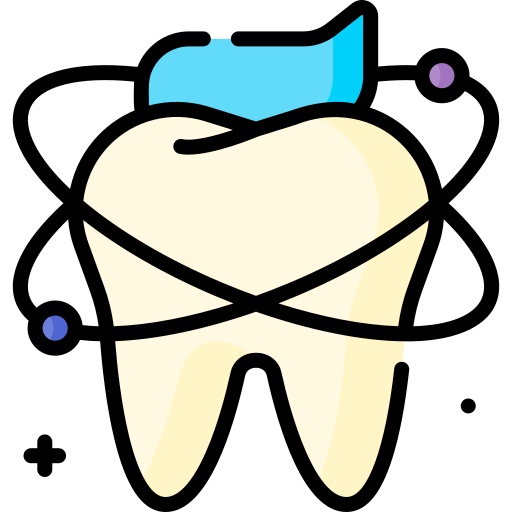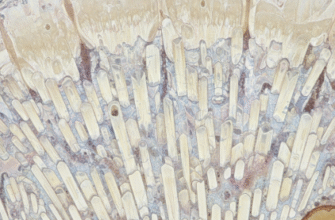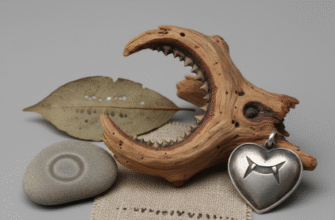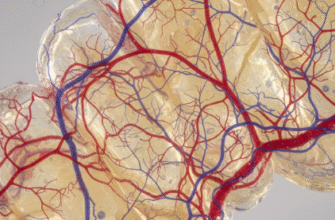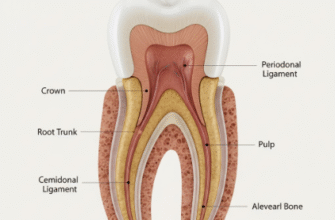Many of us have either experienced it ourselves or know someone who does: that tell-tale grinding, gnashing, or clenching of teeth during sleep. Often dismissed as just an annoying quirk or a “bad habit” someone should simply “stop,” the reality of nocturnal teeth grinding, clinically known as bruxism, is far more complex and potentially more impactful than common perception suggests. The notion that it’s merely a habit you can consciously control, especially during the unconscious hours of sleep, is a significant misunderstanding. This belief overlooks the multifaceted nature of bruxism and the array of factors that can contribute to its occurrence.
Beyond a Simple Quirk: Understanding Nocturnal Bruxism
To label teeth grinding solely as a habit is to simplify a condition that often has roots in physiological, psychological, or even lifestyle-related factors. While habits are learned behaviors that can often be unlearned with conscious effort, nocturnal bruxism typically occurs involuntarily during sleep. Individuals are usually unaware they are doing it until a sleep partner points it out, or a dentist notices tell-tale signs of wear and tear on their teeth. The involuntary nature of this action during sleep means that simply deciding to stop is rarely an effective solution. It’s not a matter of willpower when your conscious mind is offline.
Think about other involuntary actions during sleep, like dreaming or tossing and turning. You don’t consciously decide to do these things; they happen as part of your body’s sleep processes. Similarly, bruxism can be an unconscious physical manifestation of various underlying issues. Understanding this distinction is the first step towards addressing it effectively, moving beyond frustration and towards a more informed approach.
Unraveling the Triggers: What Lies Beneath the Grind?
If it’s not just a habit, then what causes someone to grind their teeth at night? The truth is, there’s often no single culprit. Instead, a combination of factors can be at play, varying significantly from person to person.
The Stress Connection
One of the most widely recognized contributors to nocturnal bruxism is stress and anxiety. In today’s fast-paced world, many people carry significant daily stress. During sleep, when conscious defenses are down, this unresolved tension can manifest physically. Clenching the jaw or grinding the teeth can be an unconscious outlet for pent-up emotions like frustration, anger, or worry. It’s akin to how some people might fidget or tap their feet when anxious during waking hours; bruxism can be the nocturnal equivalent of this nervous energy release.
Sleep’s Role and Arousals
The quality of sleep itself plays a crucial role. Bruxism is often associated with sleep arousals – brief awakenings from sleep that you might not even remember. Conditions that disrupt sleep patterns or cause frequent arousals, such as sleep-disordered breathing (like obstructive sleep apnea), can increase the likelihood of bruxism episodes. The body’s response during these arousals can sometimes include increased muscle activity, including in the jaw muscles. Therefore, addressing underlying sleep problems can sometimes alleviate teeth grinding.
Lifestyle Influences
Certain lifestyle choices can also act as triggers or exacerbate bruxism. Stimulants like caffeine and alcohol, particularly when consumed close to bedtime, can interfere with normal sleep architecture and potentially increase muscle activity. Smoking is another factor that has been linked to a higher incidence of bruxism. Even certain medications, particularly some antidepressants, may list bruxism as a potential side effect. Being mindful of these influences and discussing them with a healthcare professional can be important.
Physical and Other Factors
Sometimes, physical factors related to the teeth or jaw can contribute, although this is considered less of a primary cause than previously thought for nocturnal bruxism. An abnormal bite or misaligned teeth (malocclusion) might, in some individuals, contribute to grinding. However, for many, bruxism occurs even with a perfectly aligned bite. There’s also evidence to suggest a genetic component, as bruxism can sometimes run in families. Additionally, some medical conditions, though less common, might be associated with bruxism.
Listening to Your Body: The Telltale Signs
Since teeth grinding often happens unconsciously during sleep, how can you know if you’re doing it? Beyond a sleep partner complaining about the noise, there are several physical symptoms that can signal nocturnal bruxism:
- Morning Headaches: Waking up with a dull, constant headache, often concentrated in the temples.
- Jaw Pain or Soreness: A tired, tight, or sore jaw, especially upon waking. This can make chewing difficult.
- Tooth Sensitivity or Pain: Teeth may become sensitive to hot, cold, or sweet stimuli due to enamel wear. Pain can also occur from the constant pressure.
- Worn, Chipped, or Cracked Teeth: A dentist is often the first to spot the physical evidence of bruxism, such as flattened tooth surfaces, micro-fractures, or more significant damage.
- Tight Facial Muscles: The muscles around the jaw, face, and even neck can feel tense or fatigued.
- Earache-like Pain: Pain that feels like an earache but isn’t caused by an ear infection can be due to issues with the temporomandibular joint (TMJ) aggravated by grinding.
- Indentations on the Tongue: Scalloped edges on the tongue can be a sign of clenching or tongue thrusting against the teeth.
- Sleep Disruption: For the individual or their partner, the sounds of grinding can disturb sleep.
Recognizing these signs is crucial because chronic teeth grinding is more than just an audible nuisance; it can have significant consequences if left unaddressed.
Important Information: Ignoring the symptoms of persistent teeth grinding can lead to more serious dental problems over time. These can include significant wear of tooth enamel, fractured teeth, damage to dental restorations, and issues with the jaw joint. Early awareness and consultation with a dental professional are key to managing potential effects.
More Than Just Noise: The Real Impact of Untreated Bruxism
Dismissing nocturnal bruxism as “just a habit” means underestimating its potential for harm. The forces exerted on your teeth during grinding episodes can be substantial – far greater than the forces used during normal chewing. Over time, this can lead to a cascade of problems.
Dental Damage: This is perhaps the most obvious consequence. Enamel, the hard outer layer of your teeth, can be worn down, leading to sensitivity and an increased risk of cavities. Teeth can become shorter, chipped, or even fractured. Fillings, crowns, and other dental work can be damaged or dislodged. In severe cases, teeth may become loose.
Jaw Disorders: Chronic grinding and clenching put immense strain on the temporomandibular joints (TMJs), the complex joints connecting your jawbone to your skull. This can contribute to or exacerbate temporomandibular disorders (TMD), characterized by pain, clicking or popping sounds in the jaw, difficulty opening or closing the mouth, and headaches.
Chronic Pain: As mentioned, persistent headaches, facial pain, and neck pain are common companions of bruxism. This chronic discomfort can significantly impact quality of life, affecting mood, concentration, and daily activities.
Sleep Disruption: The act of grinding itself, or the pain associated with it, can disrupt sleep, leading to daytime fatigue and reduced alertness. For bed partners, the noise can be a major source of sleep disturbance as well.
Taking Control: What Next?
So, if grinding your teeth at night isn’t just a habit you can will away, what can be done? The first and most important step is awareness. Understanding that bruxism is a multifaceted issue often linked to other factors is crucial. If you suspect you’re grinding your teeth, or if you experience any of the telltale signs, consulting with a dental professional is highly recommended.
A dentist can examine your teeth and jaw for signs of bruxism, discuss your symptoms, and help explore potential contributing factors. They might suggest a custom-fitted oral appliance, often called a night guard or splint. These devices don’t stop the grinding itself but act as a protective barrier, absorbing the forces of clenching and grinding to prevent tooth damage and reduce strain on the jaw muscles and joints.
Beyond dental interventions, addressing potential underlying causes is key. If stress and anxiety are significant factors, exploring stress-management techniques can be beneficial. This might include practices like mindfulness, meditation, yoga, regular exercise, or ensuring you have adequate downtime and relaxation. Improving sleep hygiene – such as maintaining a regular sleep schedule, creating a restful sleep environment, and avoiding stimulants before bed – can also play a positive role. If a sleep disorder like sleep apnea is suspected, further investigation and management by a sleep specialist may be necessary.
Ultimately, nocturnal teeth grinding is far more than a minor inconvenience or a simple bad habit. It’s a signal from your body, often indicating underlying stress, sleep disturbances, or other factors that warrant attention. By moving past the myth and acknowledging its complexity, individuals can take proactive steps towards protecting their dental health, improving their sleep quality, and enhancing their overall well-being. Don’t just grit your teeth and bear it; understanding and addressing bruxism can make a world of difference.
